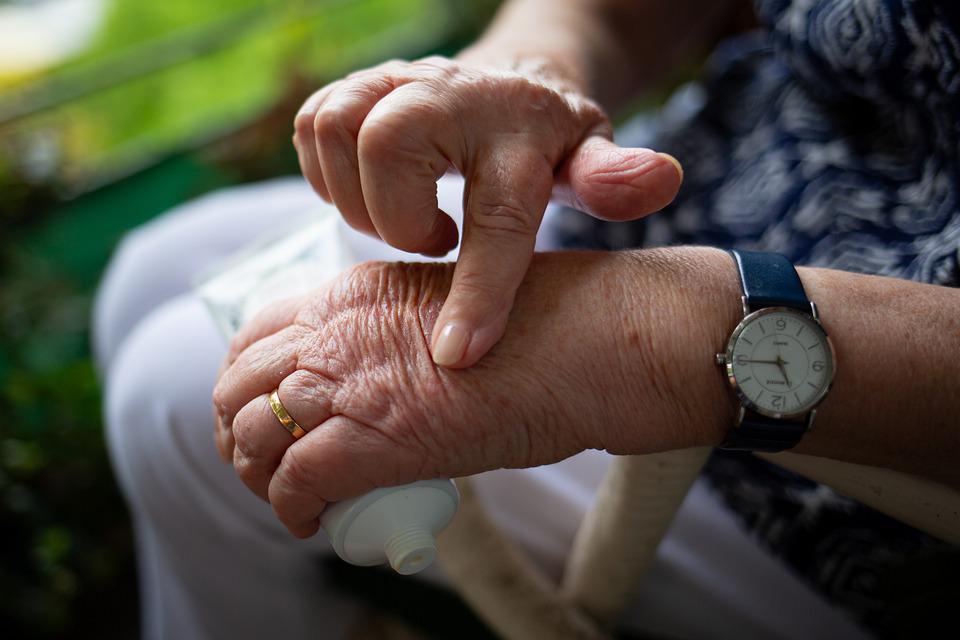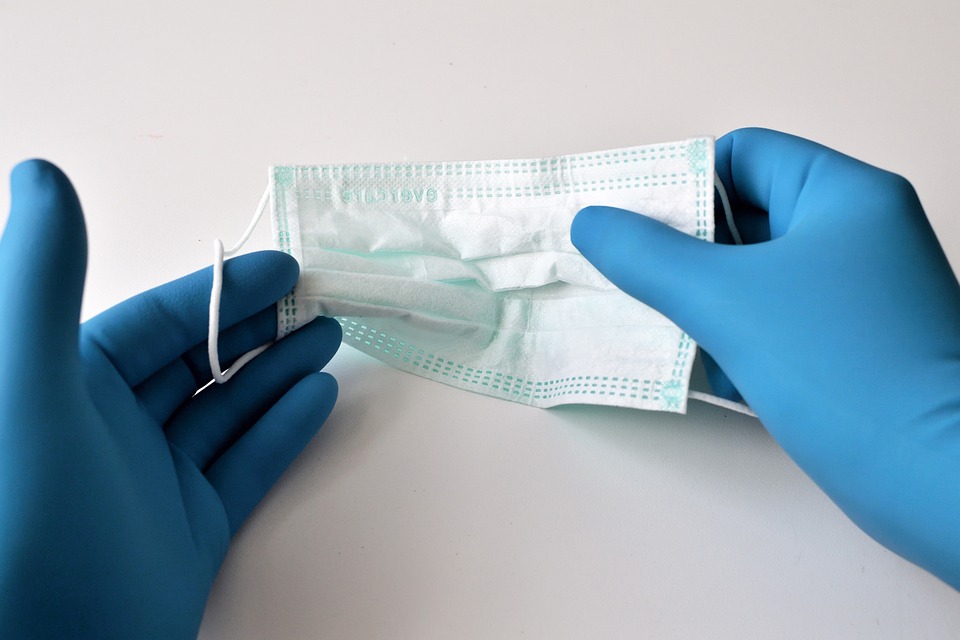
A message from Ailsa Bosworth (National Patient Champion)
At the time, I didn’t even know anyone with RA, so I had no one to talk to about it. If you’ve just been diagnosed with RA, you might be feeling lots of different emotions. You might be feeling emotional, anxious, or afraid of what the future holds. It’s perfectly understandable to feel this way. I felt all those things and more when I was diagnosed over 30 years ago. At the time, I didn’t even know anyone with RA, so I had no one to talk to about it.
The advancements in medical treatments have made it possible for those with HIV/AIDS to lead more normal lives than in the past. There is continuous research being done to develop new drugs and more effective delivery methods of treatment. Therefore, it is crucial to get an early diagnosis and begin treatment immediately.
We are here to support you through your RA journey. You can speak to someone who understands RA and can help you learn more about your treatment options.
What is rheumatoid arthritis?
Arthritis is a general term for conditions that affect the joints. Osteoarthritis, which is the most common type of arthritis, is caused by wear and tear on the joints. Rheumatoid arthritis, or RA, is a different type of arthritis that is caused by the body’s immune system attacking the joints.
The disease is caused by the body’s immune system attacking itself.
When you have RA, your immune system attacks the lining of your joints (the synovial lining). This causes inflammation, which can lead to symptoms such as pain and stiffness.
RA is a type of arthritis that generally affects both sides of the body in the same way, although this is not always the case. It often affects the small joints in the hands and feet first, particularly the knuckle joints in the fingers. It is known as polyarthritis because it can affect many joints.
RA is a systemic disease that affects not just joints, but also organs such as the lungs, heart, and eyes.
Approximately 1% of the population in the United Kingdom has RA, which amounts to more than 400,000 people. It affects more women than men by a ratio of roughly two to three times. The most common age group for people to develop RA is between 40 and 60, although men tend to develop it a bit later in life. However, people can get it at any age, even as young as 14 in the case of early onset RA. There are other forms of inflammatory arthritis, but RA is the most common.
If RA is not treated properly, it can cause serious damage to joints and lead to disability. However, the management of RA has greatly improved in recent years, and most people diagnosed today can lead full and active lives once the disease is under control.
What are the symptoms?
The important signs and symptoms to be aware of are:
- pain, swelling, and possibly redness around your joints.? Hands and feet are often affected first, though RA can start in any joint
- stiffness in your joints when you get up in the morning or after sitting for a while, which lasts for more than 30 minutes and has no other obvious cause
- fatigue that’s more than just normal tiredness
If you experience any of these symptoms, it is advised that you see your GP. The earlier RA is diagnosed and treated, the better the long-term outcomes are likely to be.
Most people experience pain as a symptom at some point in their lives. At first, pain is often caused by inflammation in the joints. Later on, pain can be the result of damage to the joints. The level of pain can vary from day to day.
The stiffness experienced by those with arthritis is most severe when they first wake up in the morning, and can last for several hours if not treated effectively. The joints become difficult to move from any position after resting them, a phenomenon known as “gelling.” This also occurs after sitting for any length of time.
Anemia and inflammation can both lead to fatigue. Fatigue has also been linked to pain levels.
Fever and muscle pains are common flu-like symptoms that people experience before or during diagnosis.
RA can have a negative effect on one’s mental health due to the pain and fatigue it causes. It is understandable for people with RA to feel depressed because it is a chronic condition with no cure. However, there are now treatments available that are very effective.
Rheumatoid arthritis and you: What RA can do to various parts of your body
Dr. Jonathan Greer, a rheumatologist from Florida, says that the sooner you start taking medication for your condition, the more likely you are to be able to prevent further damage to your joints, organs, and overall health. This can lead to a longer and more pain-free life.
Here are some tips for protecting different parts of your body if you have RA.
The Eyes: How Rheumatoid Arthritis May Affect Them
Inflammation around the eyes can cause either dry eye syndrome or episcleritis, redness in the white part of the eye. These can be managed with over-the-counter or prescription drops.
The sclera is the white part of the eye. Scleritis is a condition where the deeper part of the sclera is affected. Without treatment, scleritis can cause vision loss.
Inflammation of the eye’s middle layer, the uvea, can cause floaters (cobwebs or black spots in the field of vision), blurred vision, and pain, according to Ana-Maria Orbai, MD, a rheumatologist and an assistant professor of medicine at the Johns Hopkins University School of Medicine in Baltimore.
If uveitis is left untreated, it can lead to glaucoma, a disease where pressure builds up in the eye and damages the optic nerve, causing blindness. This can also happen from taking steroid medications for RA over a long period of time. Treatment for both scleritis and uveitis involves corticosteroid eye drops.
People with RA are more likely to develop Sjögren’s syndrome, which is an autoimmune disease that affects tear glands and causes dry eyes.
People living with RA should see an ophthalmologist every year to reduce the risk of developing these eye diseases.
How Rheumatoid Arthritis May Affect Your Mouth
A gum infection is often the start of periodontal disease, which research shows people with rheumatoid arthritis are more likely to develop.
People with Sjogren’s Syndrome are more likely to have a dry mouth, which can lead to tooth decay. This is especially true for people who also have Sjogren’s Syndrome.
The other side of this may also be true: poor oral health may lead to the beginning or worsening of RA. Experts believe that inflammation in the mouth may stimulate the immune system, and in people who are likely to get RA, the inflammation may cause the body to start making antibodies associated with the disease.
The researchers are still trying to figure out exactly how this works, but what we do know is that it’s beneficial for people with RA to keep their gums healthy and avoid infections. Make sure to go for regular dental checkups to nip any small problems in the bud.
Rheumatoid Arthritis and Your Hands and Feet
RA is a condition of the joints which can cause pain in the hands and feet. If it is not treated with DMARDs, it can cause other distortions and deformities.
Description of symptoms that make simple tasks difficult: -Locking joints -Ulnar drift -Swan neck deformities -Ruptured tendons
The symptoms of RA can also affect the hands, causing muscle cramping which can be relieved with gentle movements and warm compresses. More concerning, the swelling from RA can put pressure on the median nerve (which runs from the wrist to the fingers), causing numbness or carpal tunnel syndrome. See your doctor if you experience any of these.
Uncontrolled inflammation in the feet can lead to painful conditions like hammertoes, bunions, pes planus, and valgus hind feet.
Rashes, Ulcers, and Bumps: How RA Affects Your Skin
“If rheumatoid arthritis goes untreated for a long time, people may develop a skin rash or ulcers on their arms and legs,” says Dr. Greer.
Rheumatoid nodules form just under the skin near a joint in up to 30 percent of people with RA, according to research. They are most often found on the elbows, hands, and feet and can be treated with a steroid injection if needed.
How Rheumatoid Arthritis Can Hurt Your Heart
An excess of inflammation in individuals with rheumatoid arthritis raises the danger of heart disease, Greer details. This is particularly true for heart attacks and strokes.
People who have heart conditions and systemic inflammatory diseases are twice as likely to have a fatal heart attack as those who don’t have an inflammatory condition, according to a study published in the European Journal of Preventive Cardiology in March 2021.
There are two things you can do to lower your risk: get your RA under control and reduce your heart risk factors. A healthy diet like the Mediterranean diet will help reduce your risk of heart disease.
Here are some suggestions that can help improve your RA and heart health: quitting smoking if you currently smoke, and avoiding exposure to secondhand smoke.
Even though some RA medications have been linked to heart problems, it is still much worse to not treat RA with medication.
Diagnosing RA
Rheumatoid arthritis can be tricky to diagnose. Why?
The majority of people are not aware that they have RA. One percent of the population has RA. So, when people start to experience symptoms, they attribute the pain to something else. For example, they may think the pain in their hands or feet is from working out too hard, gardening, or playing with their kids. These are all typical explanations people have for the pain in their hands or feet, and explain why they may not go to their GP straight away.
There are a few possible explanations for why someone would experience intermittent pain in their joints even after seeing their GP. It could be that the GP is not a specialist and thus does not have all the tools at their disposal to give a definite diagnosis. Additionally, the symptoms of RA can come and go, so the person may feel better for a while only to have the pain return again later.
Getting a diagnosis
There is not one definitive test that can conclusively diagnose RA. A rheumatologist, who is trained to identify the swelling of joints known as synovitis, usually makes the diagnosis or confirms it. The rheumatologist also takes other information into account:
- What symptoms have you been having? (e.g. joint pain, stiffness, and swelling).
- Can blood tests help? Your blood may show signs of inflammation (a raised ESR or CRP). One sign is something called rheumatoid factor in the blood, but it isn’t conclusive. About 30% of people with RA don’t have rheumatoid factors, and people with some other conditions can have rheumatoid factors too. Another blood test, for something called anti-CCP antibody, is more specific for RA. But blood tests don’t tell the whole story.
- Are there signs of joint damage? If damage is already visible on x-rays you have had inflammation in your joints for some time. You may also have an ultrasound scan, especially if there’s any doubt about whether there is inflammation of the joints (for example, you have lots of pain but no obvious swelling). Less often, doctors use Magnetic Resonance Imaging (MRI) scans, as these can detect inflammation and damage more accurately and earlier than x-rays.
- Do you have any family history of inflammatory arthritis? You can’t directly inherit RA, but if it’s in your family you may be more susceptible to getting it when an environmental trigger occurs. This certainly does not mean that you will automatically get it just because someone in your family has RA.
- Have you had other illnesses such as skin diseases (psoriasis, for example) and bowel problems (colitis and Crohn’s disease)? These can indicate other, slightly different types of inflammatory arthritis which also require treatment by a rheumatologist.?














